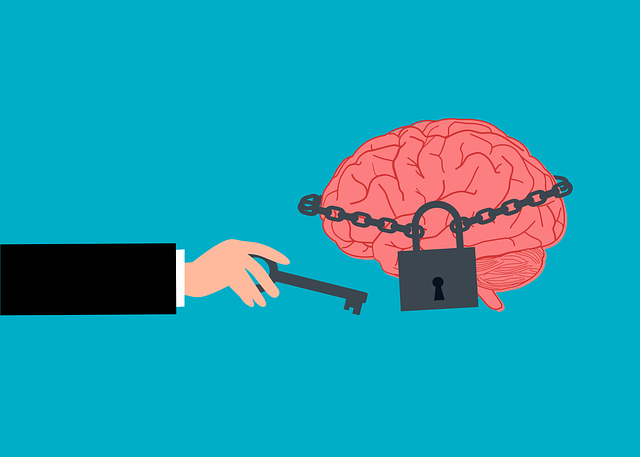Crisis intervention is a critical aspect of mental healthcare, with approaches like Lone Tree Acceptance and Commitment Therapy (ACT) proving highly effective. ACT focuses on emotional acceptance, value-driven actions, and present-moment awareness to build resilience during crises. Combined with cultural competency training and conflict resolution techniques, it offers comprehensive care for diverse populations. This integrated approach enhances crisis management, improves coping mechanisms, and promotes long-term mental wellness through tailored support and education.
In times of crisis, effective intervention strategies are vital for supporting individuals and communities. This article provides a comprehensive guide to crisis intervention, delving into key aspects that inform practice. We explore ‘Understanding Crisis Intervention’ and highlight the unique role of Lone Tree Acceptance and Commitment Therapy (ACT) in managing crises. Additionally, we offer practical strategies, discuss implementation best practices, and emphasize post-crisis support for long-term wellbeing. By examining these elements, professionals can enhance their ability to navigate and resolve crises effectively.
- Understanding Crisis Intervention: A Brief Overview
- The Role of Lone Tree Acceptance and Commitment Therapy (ACT) in Crisis Management
- Practical Strategies for Effective Crisis Intervention
- Implementation and Post-Crisis Support: Ensuring Long-Term Wellbeing
Understanding Crisis Intervention: A Brief Overview

Crisis intervention is a critical aspect of mental healthcare, designed to offer immediate support and guidance during times of intense distress or traumatic events. It aims to stabilize individuals, prevent further deterioration, and promote healing. The approach emphasizes quick assessment, tailored strategies, and effective communication to address acute psychological crises effectively.
Lone Tree Acceptance and Commitment Therapy (ACT), for instance, is a well-known evidence-based practice that has gained prominence in crisis intervention. ACT focuses on helping individuals accept their emotions while committing to actions aligned with personal values, fostering resilience during challenging times. Additionally, Healthcare Provider Cultural Competency Training plays a vital role, ensuring professionals are equipped to respond sensitively and effectively across diverse cultural contexts, thereby enhancing the overall quality of crisis care. The integration of such therapeutic models and training programs contributes significantly to improving anxiety relief and supporting individuals’ mental wellness through comprehensive coaching programs development.
The Role of Lone Tree Acceptance and Commitment Therapy (ACT) in Crisis Management

In crisis management, Lone Tree Acceptance and Commitment Therapy (ACT) emerges as a powerful tool that goes beyond traditional talk therapy. ACT focuses on helping individuals accept their experiences, particularly in situations where intense emotions or traumatic events can feel overwhelming. This form of therapy encourages clients to develop a flexible mindset, enabling them to make meaningful choices aligned with their values, even amidst crises. By fostering present-moment awareness and defusing the tendency to avoid distressing thoughts and feelings, ACT plays a pivotal role in crisis intervention.
The effectiveness of ACT lies in its ability to integrate mental health education programs design and communication strategies tailored for high-stress scenarios. It equips individuals with skills to navigate challenging situations, fostering resilience and promoting better coping mechanisms. This approach is particularly beneficial for trauma support services, where clients may struggle with dissociation or avoidance behaviors. By accepting their experiences without judgment, individuals can begin the process of healing and move towards leading more fulfilling lives.
Practical Strategies for Effective Crisis Intervention

In times of crisis, swift and effective intervention can make a significant difference in an individual’s life. One evidence-based approach gaining traction is Lone Tree Acceptance and Commitment Therapy (ACT). ACT encourages individuals to accept their emotions and thoughts without judgment while committing to actions aligned with personal values. This strategy fosters resilience and helps manage the intense feelings often present during crises. By focusing on the present moment and cultivating a sense of mindfulness, individuals can break free from unhelpful thought patterns and make proactive decisions.
Additionally, integrating Conflict Resolution Techniques into crisis intervention programs can de-escalate tensions and facilitate better communication. Mental Health Education Programs Design that emphasize early identification of warning signs and provide resources for Trauma Support Services are also invaluable. These services ensure individuals have access to specialized care tailored to their unique needs, fostering a supportive environment where healing can begin.
Implementation and Post-Crisis Support: Ensuring Long-Term Wellbeing

After an immediate crisis intervention, ensuring long-term wellbeing requires a comprehensive approach that includes both practical support and emotional nurturing. This is where techniques like Lone Tree Acceptance and Commitment Therapy (ACT) prove invaluable. ACT helps individuals cultivate psychological flexibility, enabling them to navigate challenging situations with greater ease and resilience. By focusing on present-moment acceptance and committing to valued actions, individuals can reduce the grip of distressing emotions and prevent relapse into destructive behaviors.
Integration of conflict resolution techniques is another crucial component. Teaching effective communication skills and promoting positive coping strategies empowers individuals to address underlying issues that may have contributed to the crisis. Additionally, Trauma Support Services should be readily accessible to provide specialized care for those who have experienced traumatic events. Depression prevention initiatives, such as promoting healthy lifestyle habits and teaching emotional regulation skills, can further bolster resilience and foster a sense of hope and recovery.
In conclusion, crisis intervention strategies, such as those guided by Lone Tree Acceptance and Commitment Therapy (ACT), play a pivotal role in managing and mitigating immediate distress while fostering long-term wellbeing. By combining understanding with practical tools, professionals can effectively navigate crises, supporting individuals through challenging situations. Implementation of these strategies, coupled with post-crisis support, ensures that those affected are equipped to build resilience and lead more fulfilling lives.














